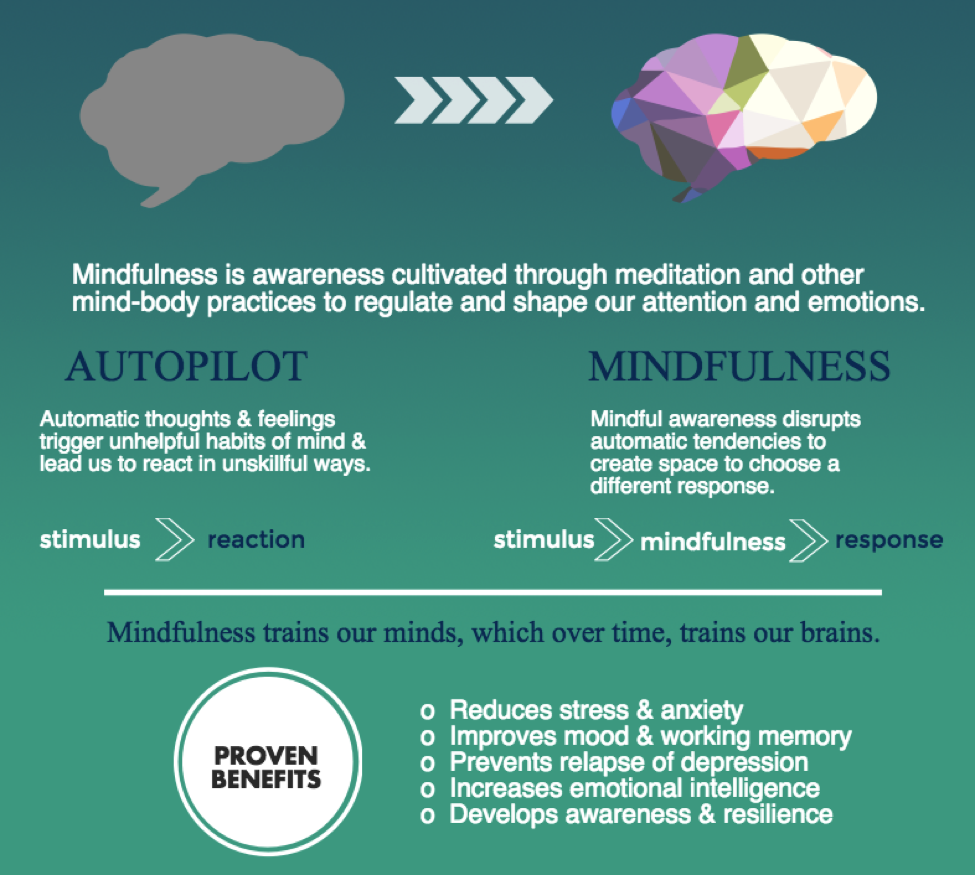What Is Mindfulness?
Mindfulness is the practice of fully engaging with our lives in the present moment. By cultivating this awareness, we can begin to notice and understand our automatic patterns of thought, emotions, and behaviours.
Being mindful means observing the present moment as it is, without judgment. Many of our struggles stem from dwelling on past regrets, worrying about the future, or being critical of the present. Through mindfulness, we become more conscious of these tendencies and learn to approach them with curiosity, which opens up possibilities for healthier and more adaptive responses to life’s challenges.
Who Can Benefit from Mindfulness-Based Therapies?
Mindfulness is accessible to everyone, regardless of religious or spiritual beliefs. Its benefits are supported by a growing body of research, demonstrating its positive impact on mental and physical well-being.

(Image reference: The Centre for Mindfulness Studies, Toronto)
How Do You Practice Mindfulness?
Like physical exercise, mindfulness requires consistent practice to create meaningful change. Over time, due to the brain’s ability to reorganize itself (neuroplasticity), regular mindfulness practice can lead to lasting changes in the brain.
Mindfulness is typically practiced by intentionally focusing on a specific object, such as the breath, body sensations, emotions, or thoughts. It can also involve simply observing the ebb and flow of thoughts, feelings, and physical sensations with a non-judgmental attitude.
Mindlessness, on the other hand, occurs when our minds wander or operate on autopilot. A Harvard study revealed that our minds are unfocused nearly 47% of the time, and this wandering is linked to unhappiness.
In mindfulness practice, distractions will inevitably arise—your mind might drift to a daydream, a to-do list, or a recent argument. The key is to notice when this happens and gently guide your attention back to your chosen focus, whether it’s your breath, body, or another anchor. This repeated act of returning to the present moment is at the heart of mindfulness and strengthens our ability to remain aware and engaged in our daily lives.
Is There Evidence Supporting the Benefits of Mindfulness?
Yes, a substantial and growing body of research supports the benefits of mindfulness and mindfulness-based therapies. Over the past two decades, numerous clinical studies have demonstrated that mindfulness can be highly effective in managing a variety of mental and physical health conditions, including:
Stress Reduction: Mindfulness practices are well-known for their ability to lower stress levels by helping individuals manage their responses to stressors more effectively.
Reduced Rumination: Regular mindfulness practice can decrease rumination, which is the repetitive and often negative focus on problems or distressing thoughts.
Improved Mood: Mindfulness has been shown to reduce symptoms of depression, anxiety, and other negative emotional states, leading to improved overall mood.
Improved Emotion Regulation: By fostering awareness and acceptance of emotions, mindfulness helps individuals respond to emotional triggers in healthier, more balanced ways.
Increased Focus: Mindfulness enhances concentration and the ability to stay focused on tasks, which is particularly beneficial in our distraction-filled culture.
Enhanced Cognitive Flexibility: Mindfulness encourages a more adaptable mindset, allowing for greater creativity and problem-solving abilities.
These benefits make mindfulness a valuable tool not just for those with specific health concerns, but for anyone looking to improve their mental and emotional well-being.
Please see our upcoming group program offerings for more details on Dr. Guthrie’s mindfulness classes.
